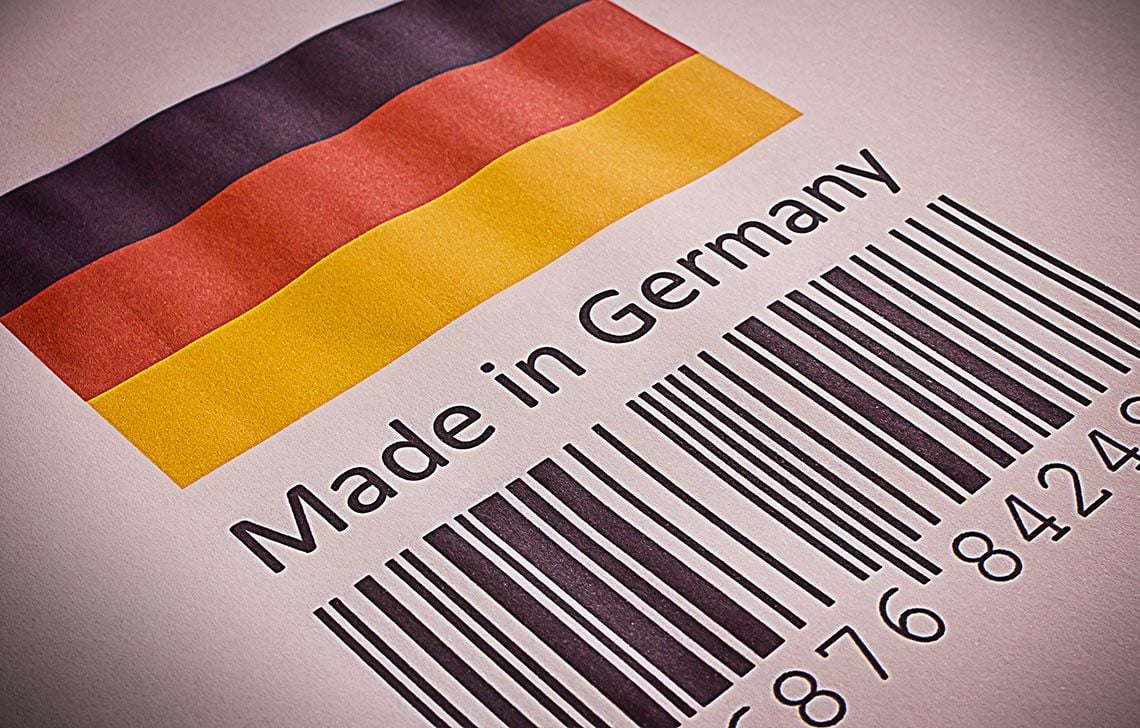Euro Fumbles as German, Spanish Inflation Data Undershoot
- Written by: Gary Howes

Image © Adobe Stock
The Euro traded broadly softer after inflation data from Germany undershot expectations, hinting that the worst of the region's inflation crisis might now have passed and the European Central Bank could therefore consider discussing what an exit from its interest rate hiking policy looks like.
The Pound was trading higher against the Euro for the day at €1.1580 after German inflation for November read at -0.5% month-on-month, a sharp slowdown on October's 0.9% and softer than the consensus expectation for -0.2%.
The Euro saw its advance on the Dollar overturned, with EUR/USD retreating from a daily high at 1.0394 back to 1.0340.
Germany's annual inflation rate stood at 10% in the year to November said Destatis, softer than October's 10.4% and lower than the consensus estimate for 10.4%.
The data comes ahead of Wednesday's CPI inflation release, which now looks on course to meet the lower end of expectations.
Spain reported an even larger undershoot on Tuesday as the month-on-month figure came in at -0.1%, down from October's 0.3%.
Year-on-year the figure read at 6.8%, down on October's 7.3%.
Compare Currency Exchange Rates
Find out how much you could save on your international transfer
Estimated saving compared to high street banks:
£2,500.00
Free • No obligation • Takes 2 minutes
Belgian inflation read at 0.23% month-on-month in November, down on 2.37% previously, taking the year-on-year change to 10.63%, a slowdown from 12.27%.
The ECB is now expected to hike interest rates by 50 basis points in December as it continues to try and contain inflation expectations and cool domestically-generated price rises.
ECB rate hikes have in turn raised interest rates across various financial assets in the Eurozone, making them increasingly attractive to foreign investors, which has in turn offered the Euro support.
But there are some in the ECB who believe it would be prudent to consider slowing the pace of tightening to assess the impact of previous rate hikes.
The softer Euro suggests investors now believe these voices could become louder in view of the softer inflation readings.
"For the ECB... today's German inflation number as well as the sharp drop in Spanish inflation could be reason enough to go for a 50bp rate hike and not another jumbo rate hike by 75bp at the December meeting," says Carsten Brzeski, Global Head of Macro at ING Bank.
Brzeski does however believe the peak in German inflation is still yet to come.
"Available regional data suggest that the drop in headline inflation was mainly driven by energy base effects and a drop in prices for leisure and entertainment after the Fall vacation period," says Brzeski.
"Looking ahead, the November inflation number might not yet be the peak of German inflation. We rather expect headline inflation to rebound in December, before finally reaching a more structural peak in the first quarter," he adds.
If the assessment is correct, then it might be too soon for ECB policymakers to declare victory against inflation.
"The pass-through of higher wholesale gas prices is still in full swing. Many households will see the first price increase only as of 1 January," says Brzeski.
Compare Currency Exchange Rates
Find out how much you could save on your international transfer
Estimated saving compared to high street banks:
£2,500.00
Free • No obligation • Takes 2 minutes




